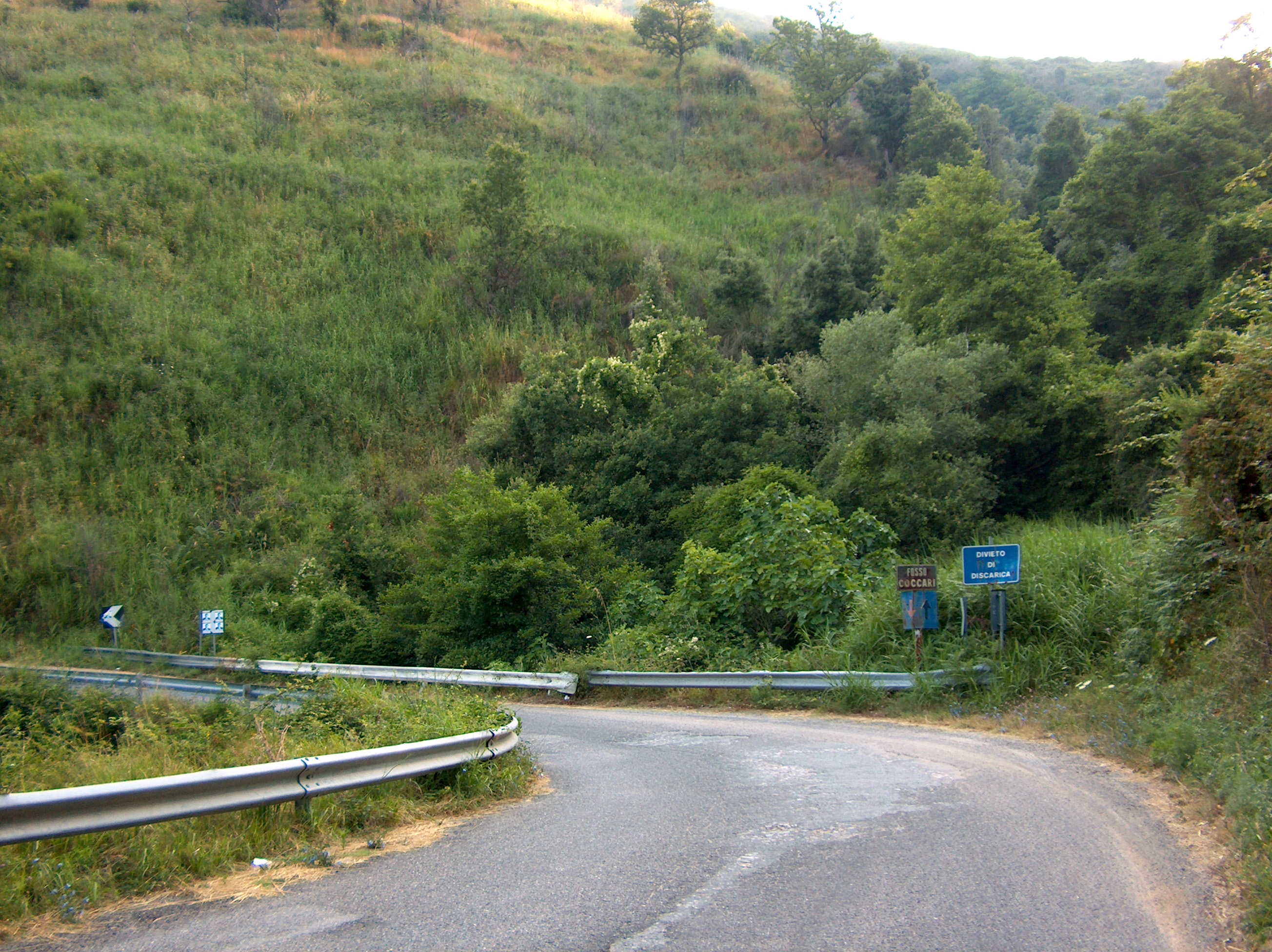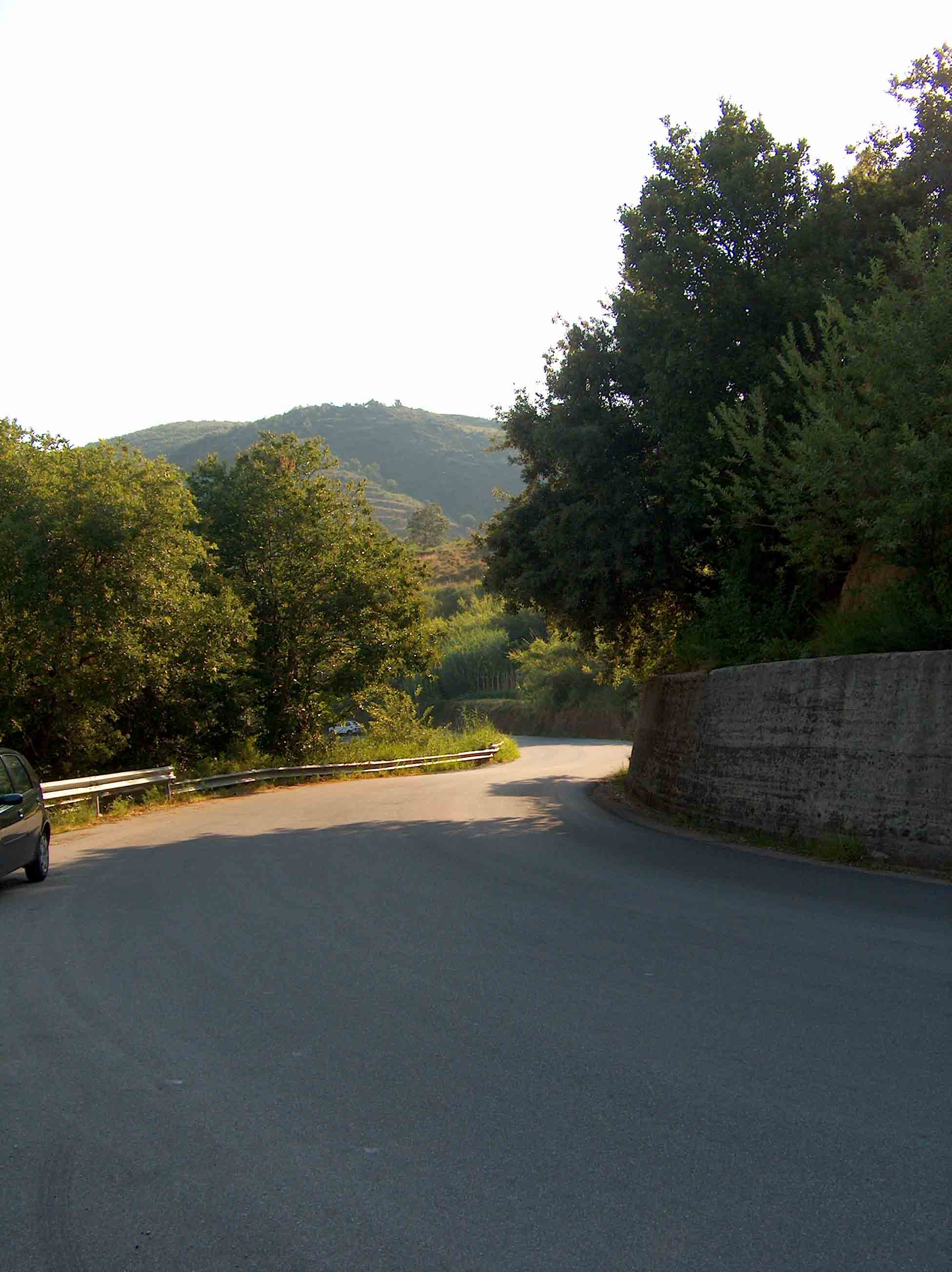| |
|
Dai Suvari alla
chiesa
From the North Side
to the church
______________________________
This is the road that
meanders its way to Capistrano from the town of Monterosso.
Questa e` la
strada che da Monterosso porta a Capistrano e alla chiesa.









 \ \

Welcome to Capistrano!


The first
public fountain -- Capistrano began in this area around the year 850 AD.

The red building is the
electrical power station.

Leaving the Batia / Zufone area

Approaching the Maestro Fera
home.

The pharmacy, nearing the new
piazzetta.

| |
North
of four corners. This lovely square rests on "pillars," as the area under
it is a steep valley. In the distance, behind
the hills,
one can see the
Mediterranean Sea. The sunsets one can watch from this piazza are
stunning. |
|

| |
The monument to "Padre Pio,"
a well known Italian Catholic saint. The town's people are very devout
Catholics, as their monuments indicate. This statue is found right across
the new piazza. |
|

| |
This is the true centre of
town, where the two major streets intersect. We refer to it as "Il Bivio",
(Four corners).
This is where most of the action takes place. In the evening, men gather
in this location to talk about sport, politics or to simply joke around,
as our townspeople love to do.
My family's clothing store and barber shop were located in this area, up
to the 1970's. The big green house on the left is built on pillars. It is
the house of one of the town's former mayors, Antonio Pasceri. As a child,
I used to live on the first floor of the orange house on the left. |
|

From "Il Bivio" (Four
corners), looking toward Piazza Renoir.

| |
The main church was completed
in 1760. It was built on the same location as an earlier church which was
probably built in the 1500's. There is written documentation that a church
existed in this location in 1630. The original church was destroyed by an
earthquake in 1659. It was rebuilt and was again detroyed by another
earthquake, in 1783. It was rebuilt once again from 1794-1798 in a Late
Baroque style. It is said to contain a fresco repaired by Renoir
while being hosted by the local priest. Renoir's visit to Calabria
was documented by his son in his father's biography. |
|
Welcome to Capistrano!
Benvenuti a Capistrano!
(Foto di Michele
Caputo / Photos by Mike Caputo)
Photos List /
Lista
Foto
HOME |
|
|